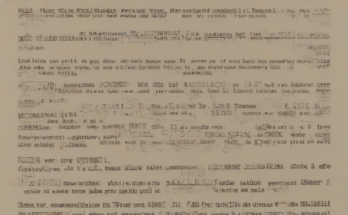Maryland Vehicle Donation: A Comprehensive Guide to Donating Your Car for Charity
Donating your car in Maryland is a rewarding way to support your favorite charity while decluttering your life. This guide provides a comprehensive overview of the process, addressing common questions and concerns to help you make an informed decision.
Why Donate Your Car in Maryland?
- Tax Benefits: Donating a vehicle to a qualified 501(c)(3) charity in Maryland can provide you with a significant tax deduction. The amount of the deduction depends on the fair market value of your vehicle at the time of donation. Consult a tax professional for personalized advice.
- Easy and Convenient: Many charities offer free towing services for vehicle donations, making the process hassle-free. You don’t have to worry about the logistics of selling your car privately.
- Supporting a Good Cause: Your donation directly supports the mission of the chosen charity, allowing them to continue their vital work in the community.
- Environmentally Friendly: Donating your car helps keep it out of landfills, reducing environmental impact. Many charities responsibly recycle or resell donated vehicles.
- Peace of Mind: You receive a receipt for your donation, providing documentation for tax purposes and assurance that your contribution has been properly handled.
Choosing a Reputable Charity
Selecting a trustworthy charity is crucial. Before donating, thoroughly research the organization’s history, mission, and financial transparency. Look for charities with established reputations and positive reviews. Consider these factors:
- Charity Navigator Rating: Websites like Charity Navigator provide ratings and reviews of charities based on their financial health and accountability.
- GuideStar Profile: GuideStar offers detailed information on nonprofit organizations, including their financial statements and programs.
- Online Reviews: Check online reviews and testimonials to gauge other donors’ experiences.
- Mission Alignment: Choose a charity whose mission aligns with your values and interests.
- Vehicle Donation Program Details: Understand the charity’s specific vehicle donation process, including towing procedures, paperwork requirements, and the use of donated vehicles.
The Donation Process
The process of donating your car in Maryland typically involves these steps:
- Research and Select a Charity: Choose a reputable charity that accepts vehicle donations.
- Contact the Charity: Contact the charity’s vehicle donation program to initiate the process. They will provide you with necessary information and forms.
- Provide Vehicle Information: You will need to provide details about your vehicle, including the make, model, year, VIN, and mileage.
- Schedule a Pickup: The charity will schedule a time for a tow truck to pick up your vehicle. This is usually free of charge.
- Sign the Title: You will need to sign the title over to the charity. The charity will guide you through the necessary paperwork.
- Receive a Tax Deduction Receipt: Once the vehicle is picked up and processed, you will receive a tax deduction receipt outlining the fair market value of your vehicle. This receipt is crucial for claiming your tax deduction.
Tax Implications of Vehicle Donations
The tax benefits of donating your car in Maryland can be substantial. However, it’s crucial to understand the rules and regulations:
- Fair Market Value: Your tax deduction is based on the fair market value of your vehicle at the time of donation. You can find resources online to estimate this value, such as Kelley Blue Book or Edmunds.
- Documentation: Keep meticulous records of all documentation related to your donation, including the donation receipt, the vehicle’s title, and any communication with the charity.
- Publication 526: Consult IRS Publication 526, “Charitable Contributions,” for detailed information on claiming deductions for vehicle donations.
- Limitations: There may be limitations on the amount you can deduct. The deduction is typically capped at the fair market value of your vehicle, not the original purchase price.
- Tax Advisor: It’s highly recommended to consult with a qualified tax advisor or professional to ensure you comply with all IRS regulations and maximize your tax benefits.
What Happens to Donated Vehicles?
Donated vehicles often have several potential outcomes depending on their condition and the charity’s program:
- Resale: Vehicles in good condition may be resold, with the proceeds benefiting the charity.
- Parts Recycling: Vehicles that are too damaged to be resold may be dismantled for parts, which can then be reused or recycled.
- Direct Use: Some charities may use donated vehicles directly for their operational needs.
- Responsible Disposal: Charities often ensure that vehicles are disposed of responsibly, minimizing environmental impact.
Avoiding Scams
Unfortunately, some organizations exploit the generosity of donors. Be vigilant in avoiding vehicle donation scams. Here are some warning signs:
- High-Pressure Tactics: Legitimate charities won’t use high-pressure sales tactics to solicit donations.
- Unclear or Vague Information: Be wary of organizations that provide unclear or vague information about their vehicle donation program.
- Requests for Immediate Payment: Legitimate charities will not ask for payment to pick up your vehicle.
- Unregistered Charities: Ensure the charity is a registered 501(c)(3) organization with the IRS.
- Lack of Transparency: A lack of transparency about how donated vehicles are used is a major red flag.
Types of Vehicles Accepted
Most charities accepting vehicle donations will accept a wide variety of vehicles, including:
- Cars
- Trucks
- SUVs
- Vans
- Motorcycles
- Boats
- RVs (in some cases)
However, the specific types of vehicles accepted may vary depending on the charity’s program. Always confirm with the charity before donating.
Preparing Your Vehicle for Donation
While most charities accept vehicles in various conditions, taking a few steps to prepare your vehicle can make the process smoother:
- Remove Personal Belongings: Remove all personal belongings from your vehicle before donation.
- Gather Necessary Documents: Gather all necessary documents, such as the vehicle’s title and registration.
- Inform Your Insurance Company: Inform your insurance company that you are donating your vehicle.
Frequently Asked Questions (FAQ)
- Q: What if my car doesn’t run? A: Most charities will still accept non-running vehicles. They often have arrangements for towing and disposal.
- Q: How long does the process take? A: The process typically takes a few days to a couple of weeks, depending on the charity and the vehicle’s condition.
- Q: Can I donate a vehicle with a lien? A: You usually cannot donate a vehicle with an outstanding lien. The lien must be paid off before donation.
- Q: What if I owe money on my car loan? A: You need to pay off the loan before donating the vehicle. Contact your lender to understand the payoff process.
- Q: Can I donate a vehicle to any charity? A: No, only 501(c)(3) charities are eligible to receive tax-deductible vehicle donations. Ensure the charity is qualified.
- Q: What if I live outside of Maryland? A: The process may vary depending on your state. Research vehicle donation programs in your specific location.



